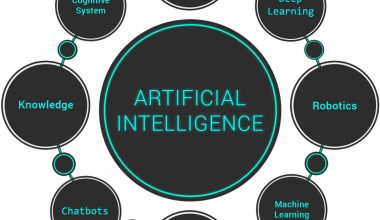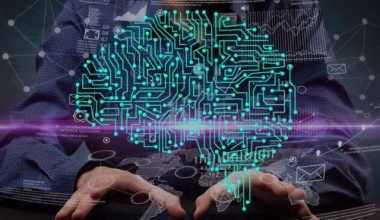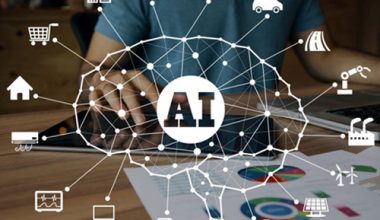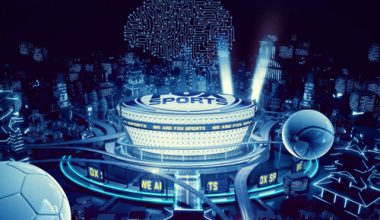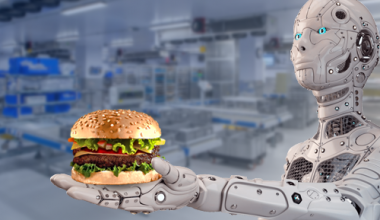
Smart robots, sensors, and vision systems with the power of artificial intelligence are making their way into every industry across the globe. In many ways they are transforming we deal with our surroundings and handle our responsibilities going forward. One of the biggest responsibilities that humans have towards the planet on this present day is to optimise every recycling process and help live an environmentally sustainable life. Technology would now act as the required impetus that humans needs to save the environment in the best possible ways. Artificial intelligence is slowly transforming the way we recycle waste. The advantage of employing artificial intelligence in recycling efforts is double layered in most scenarios — firstly, they would quicken the process of sorting the waste coming into the recycling facility; and secondly, they can also help in analysing the sorted waste and help in identifying specific types of waste, such as different grades of plastic. The artificial intelligence systems can also be programmed to identify the incoming waste for potential pathogens from contaminated food products. The core tools of the artificial intelligence enabled recycling facility would be deep learning, and visual recognition.
Another approach would be employing robots or artificial intelligence enabled trucks to collect the waste. This would allow sorting earlier into the process and speed up the entire recycling process. Further, vending machines can be engineered to enable to reverse their role. Adding to their role of dispensing products, they can begin to accept waste cans, plastic bags, or bottles — sorting them appropriately for further processing. This would make it easier for the general populace to contribute and participate in the process; thus making the community an integral part of environmentally sustainable living practices.
There are a few organisations across the world that are working towards integrating artificial intelligence with recycling process. Despite successes, the road ahead remains replete with multiple opportunities yet to be perfected.
The principal concerns can be discussed as in the following sections.
Revolutionising Sorting
Not all types of waste can be, should be, or are treated in a similar way. Every form of waste — even based on their specific grades in sub-groups — requires to be treated in a specific manner to ensure that they are recycled properly and do not end up harming planet earth in some other way. Therefore, one of core challenges of a recycling facility is to sort the incoming waste. Artificial intelligence can be used to increase the speed of the sorting process, while ensuring that the possibility of human errors are reduced considerably.
Machine learning and artificial intelligence can be used to sort the incoming waste into broader classifications such as plastic, wood, and glass. Then, for the second level of sorting, the machine can sort the plastic based on its grade, wood based on the pieces’ composition, and glass based on their mark. This would help to ensure that the waste reaches the appropriate recycling facility and successfully makes its way back into use, rather than filling up a landfill.
For recycling facilities that cater to a specific retail organisation, the sorting mechanism can be designed to meet their specific needs. For instance, a recycling facility caters to the recycling needs of an ice-cream parlour, a smoothie bar. The ice-cream parlour serves in two types of containers — paper cups for single or double serves, and plastic tubs for serves that are bigger that two scoops. The smoothie bar uses glass bottles of two different sizes — 300 mL and 800 mL — to serve their customers. Thus, at the recycling facility the primary sorting can be directed at differentiating plastic from paper and those from the glass. The glass bottles can then be subjected to secondary sorting process, where they are sorted according to their size.
A major advantage of such a layered sorting process is the fact that the concerned organisations — the ice-cream parlour and smoothie bar, in this case — can keep tracked of the amount of waste they have been able to recycle. This would help organisations to design environment policies that address loopholes they identify during the recycling process.
The Future with Artificial Intelligence
The present phase of developing artificial intelligence for the benefit of recycling facilities is focused on aspects of deep learning. One of the principal goals of introducing deep learning aspects of artificial intelligence in the recycling industry is to address and resolve the challenges that these facilities suffer as of now. Improving efficiency of a recycling facility is one of biggest objectives of any organisation at this given time. Deep learning aspects would help immensely in that capacity. Introducing deep learning aspects would eliminate the handpicking station, and make the entire process that much smoother. The automation of sorting will also help in ensuring that recycling processes do not breakdown due to foreign materials in the line. It is essential to understand that the speed of production of waste and the capacity to recycle them are not currently balanced. In an ideal situation, the waste produced would be proportional to those recycled, and speed is the only factor that can help balance the scale. Therefore, the prime focus of integrating artificial intelligence would be help accelerate the process of recycling. A major support is also likely from the aspects of Big Data. Big Data refers to the plethora of information that has been collected and can be put to use with the help of various forms of machine learning already in place across the entire world.
Conclusion
Artificial intelligence is being deployed to a multitude of industries; and is gaining a momentum that holds the capability of changing how we react, operate, and comprehend regular activities. The possibilities of artificial intelligence, machine learning, and Big Data are immense. Therefore, their application to any industry is bound to kick-start a revolutionising effect. Furthermore, living sustainably is of utmost importance in the present world — thus, it is rightfully expected that artificial intelligence will be introduced into recycling facilities in full swing within the next few years.
About Fusion Informatics
Technology and sustainable living, for a long time, were believed to be mutually exclusive. Technology is often seen as the villain because of how it brought humans away from the nature during the past two centuries. Technology has come full circle and now remains the most powerful defence against the deteriorating state of Mother Nature. We, at Fusion Informatics, understand the responsibility of technology in building a new world that promises a more sustainable style of living. We are determined to help our clients find ways in which they can give back to Mother Nature through sustainable technology.
